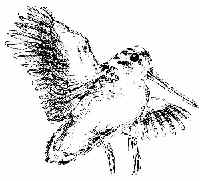Introduction to the Spring Issue of Gatherings
Body, Mind & Spirit in Ecopsychology
~ Bob Worcester
Chief Seattle, er Professor Perry speaks
~ John Scull
Gaeaphobia
~ Robin Van Tine
Poems
Ecopsychology
in Practice
~ Peter Cock
Multiple
Approaches to Ecopsychology
~ Robert Greenway
Book
Reviews
~ John Scull
Ecopsychology
& Neo-shamanic Practice
~ Sylvie Shaw
Coming Home
~ Marianne Worcester
Born of a Star
~ Performed by the
Singers of the Sacred Web
To hear this song, Download
RealPlayer
Eco-Images
~ Uri Cogan

Gatherings:
Seeking Ecopsychology
The Spring
Issue: May 2000
The
Spring Editor ~ Bob Worcester
Fire llustration by Alexi Francis
The mind is more like a
jungle than a computer
~ Gerald Edelman
Welcome to the Spring issue of Gatherings!
Ecopsychology is evolving as an approach to thinking about a complex number of subjects, including ecology, environmental science, philosophy, psychology, psychiatry, education, imagination and spirituality.
We use the metaphor of "fire" to indicate a "gathering together" to sing, tell stories, and exhort one another to hear what nature is saying to the diversity of our experience as people of this planet suspended, as we are, between the prehistory of hunting and gathering and the post-modern period where we are in danger of losing meaningful contact with the organic matrix that sustains us.
 Since this is the second issue,
you might want to begin with some of the background and
explanation of this e-zine in Introduction to the Spring Issue which explores why a conversation
begun in Winter continues in the Spring.
Since this is the second issue,
you might want to begin with some of the background and
explanation of this e-zine in Introduction to the Spring Issue which explores why a conversation
begun in Winter continues in the Spring.
In Body, Mind & Spirit in Ecopsychology the role of biology, psychology and culture are examined from the perspective of human relationships to "more-than-human" nature. Ecopsychology is taking its place in the development of a deeper understanding of human nature. Bob Worcester is a psychology instructor at Lanagara College, Vancouver, British Columbia.
In Chief Seattle, er Professor Perry speaks John Scull traces the history of the famous speech "so long as the grass grows and the rivers run." The stirring words were an invention of the media and the real message of Chief Seattle has been largely overlooked. John also reviews "The Whispering Pond" by Ervin Laszlo. Laszlo looks at cosmology, evolution and consciousness from a systems view. John Scull is a practicing clinical psychologist and eco-activist who lives on Vancouver Island.
In Gaeaphobia, the destructive attitude people hold toward the natural world is compared to psychopathologies and defense mechanisms. Similarities in the factors that lead to this condition and might contribute to "healing" are explored. Robin van Tine is an educator who teaches Holistic Health Science and Environmental Science at Saint Leo University, Tidewater Cente, Newport News, Virginia.
Peter Cock describes Ecopsychology in Practice from his experience using natural environments to sensitize people to the healing influence of nature. He calls on considerable experience in this area, counselling and facilitating workshops in Australia. He is a Senior Lecturer at the Graduate School of Environmental Science, Monash University, Melbourne, Australia
Robert Greenway calls on his long experience with ecopsychological issues to describe a number of approaches to ecopsychology. This term means different things to different people and Robert attempts to sort through these different perspectives in: Multiple Approaches to Ecopsychology . Robert is a long time ecopsychologist, writer and garlic farmer from Port Townsend, Washington.
Sylvie Shaw combines her environmental and academic interests in a paper on Ecopsychology & Neo-shamanic Practice. This article discusses the connection between earth healing and self-healing among people involved in an earth-based spiritual practice. It is based on her research with a group of new age or 'neo-shamans' who live in Melbourne and who are involved in a Native American-inspired form of ritual and nature spirituality.

O Living Land,
Spirit who singing sang the hills
Breathing the sun and the rain
spun a sacred Web
The broken and unbroken of the land
the broken and unbroken of my life
The times I reach, the times that I refrain
The furrow and fallow turning in the rain
(from Hills of Grass by Carolyn McDade )
Caroline McDade and Singers of the Sacred Web produced a CD of music related to women's experience of the Canadian landscape. A sample of their singing can be heard on RealPlayer through this link:
" Born of a Star " ( 850 kb sound file )
Their new album CD, "We are the Land We Sing" is available from: http://www.cableregina.com/business/livingland/
Marianne Worcester, one of the Singers of the Sacred Web, has written a piece describing one's sense of place that emerges out of the experience of making the transition by water from urban to wild environments in Howe Sound near Vancouver, B.C.
In " Coming Home " she reflects on the relationship between the land and one's sense of self. Marianne is a writer and educator who teaches English at Vancouver Comunnity College, Vancouver, B.C..

Robin van Tine presents three poems that capture the resonance of consciousness to natural phenomona. Poems
Uri Cogan presents two images from his collection that capture some of the magic of west coast landscape. Eco-images Uri is an artist, healer and activist currently involve in efforts to stop clearcut logging on beautiful Salt Spring Island.
We hope you've enjoyed this experience of Gatherings; the next issue will be coming out in Summer of 2000. If you have any comments on what you read in this issue, suggestions or contributions you'd like to see in the next 'gatherings', please contact the editor at editor@ecopsychology.org
